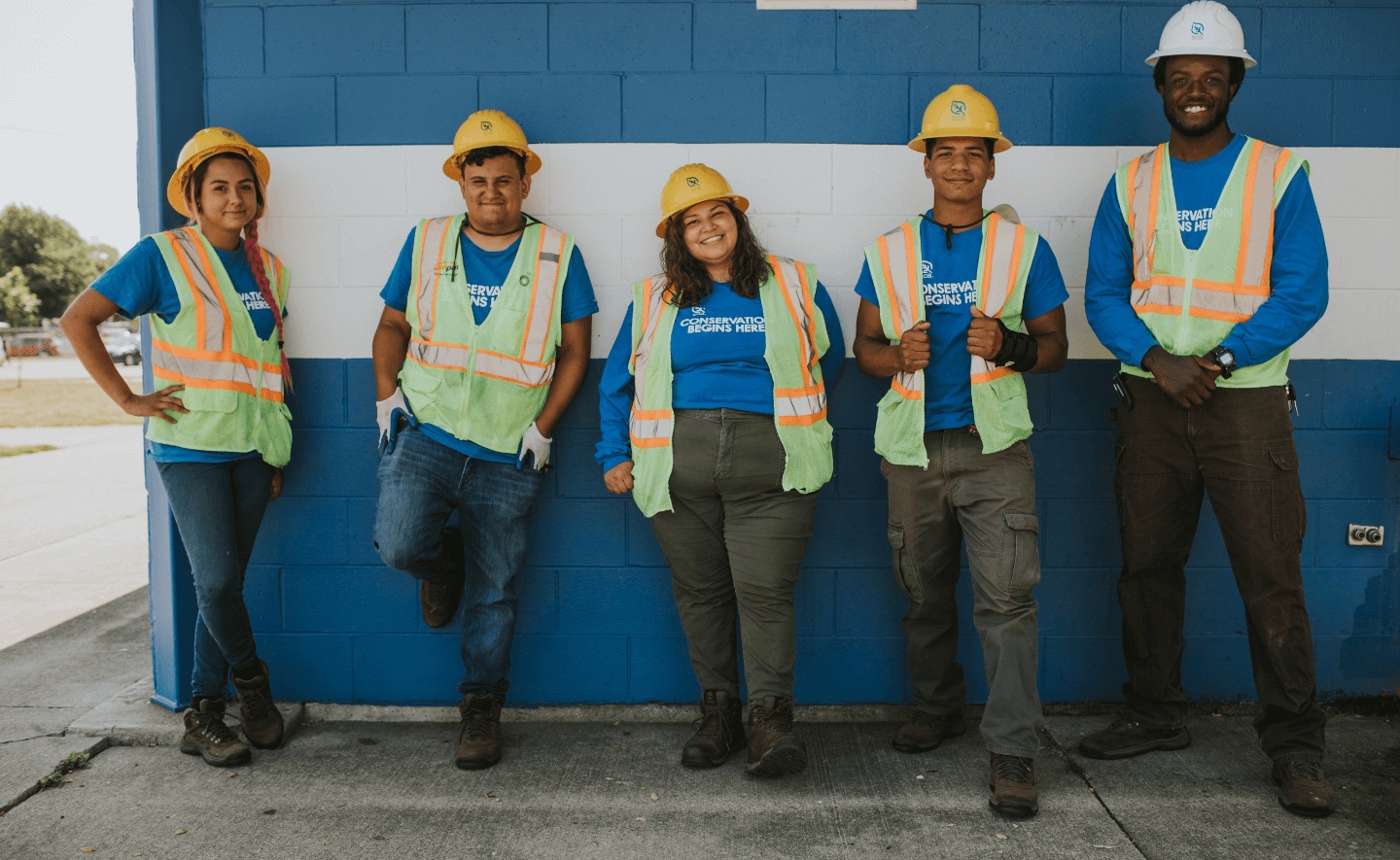Our internships are for college students and recent graduates, and range from eight weeks to 12 months. Using the SCA’s national recruiting network, pre-qualified candidates are submitted to the partner for review, interview and ultimate selection. Partners provide funding, training, professional development opportunities, housing (or cost of housing), on-the-job transportation and performance evaluations.
The SCA provides total administrative and oversight support for all Internship positions, including processing candidate background checks, payroll, and liability and worker's compensation coverage. Depending on the job duties, the internship may be AmeriCorps eligible, allowing the intern to enroll in AmeriCorps to receive an AmeriCorps Education Award upon successful completion of the position.
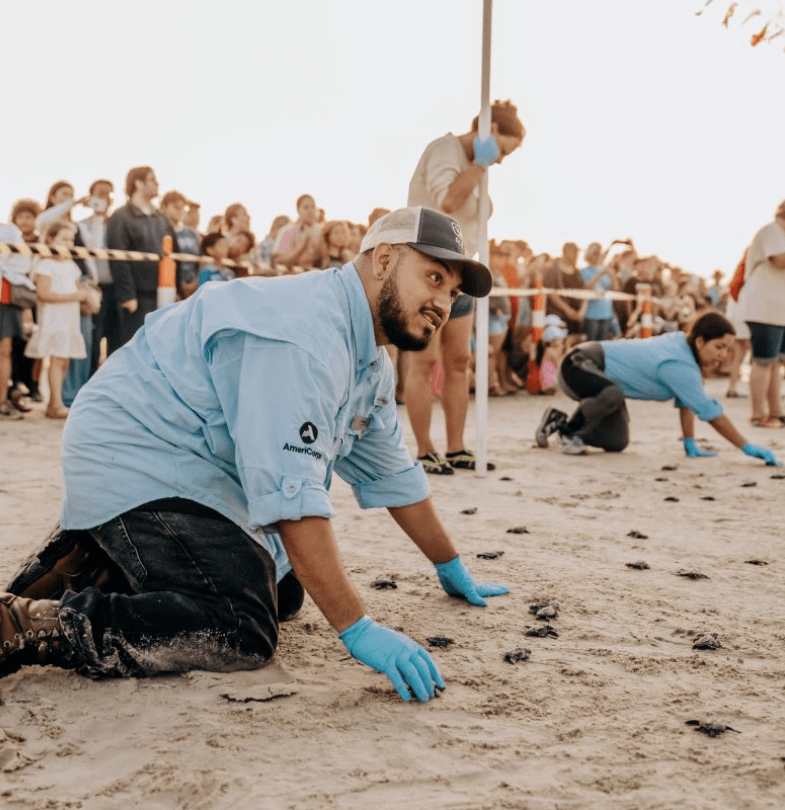
These teams complete specialized, site-specific projects such as large-scale ecological restoration, wildlife habitat improvement, trail development and assessments, fire and invasive species management, vegetation monitoring and Geographic Information Systems (GIS) mapping.
Teams can be certified in Wilderness First Aid, S-212 Chainsaw certification, S-130/190 Fire Certification, and pre-trained in rigging, Leave No Trace, risk management and safety and leadership development. Projects can range from 2 weeks to 10 months. Team members and leaders are selected and trained by the SCA.
As an SCA-managed program, Team-Based Programs are designed to minimize the partner site’s administrative responsibilities and to complete projects to the required specifications. The SCA provides total administrative and oversight support for all Team-Based Programs, including processing candidate background checks and payroll and providing liability and workers compensation coverage.
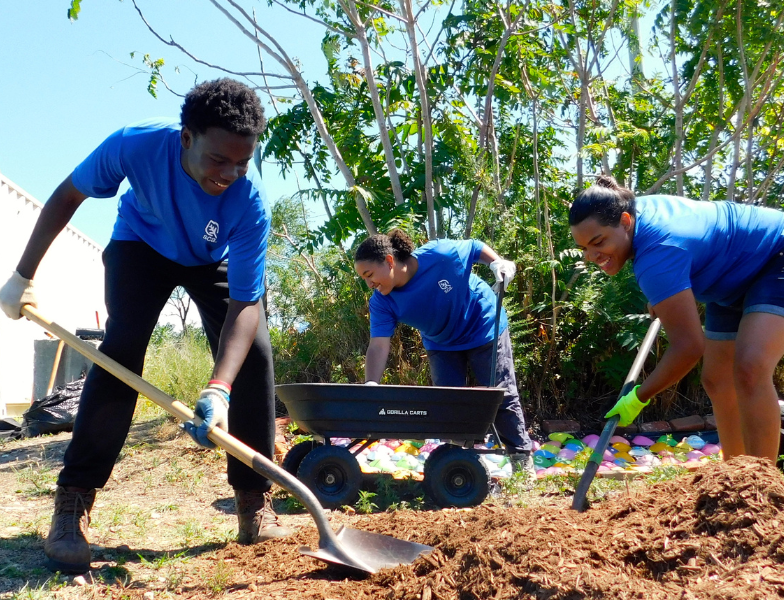
The SCA's Urban Green programs are paid innovative workforce development opportunities for youth and young adults underrepresented in the conservation field. This model delivers 21st century skills and career-readiness training to young people while providing much-needed stewardship at local parks, forests, trails and other green spaces.
Educational and youth development activities teach teamwork and leadership, job readiness skills, enhance environmental awareness, and build confidence and character. The SCA is committed to providing young people with the tools they need to succeed in the field of conservation. Our programs also include activities that address issues related to environmental education and socio-emotional development.
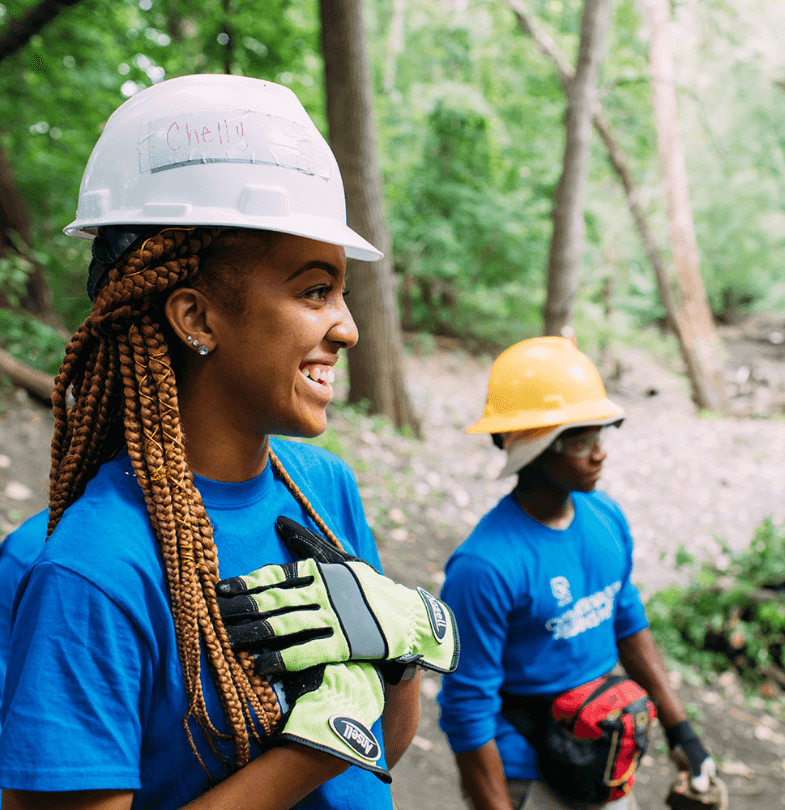
The SCA’s National & Regional Initiatives specializes in intern cohorts placed across multiple regions and feature special recruiting practices, including diverse workforce programs, and targeted programs based on age and education level.
This model often includes aspects of our other programs, including special training (trails or fire fuels reduction) and in-person orientations for participants featuring career development opportunities.
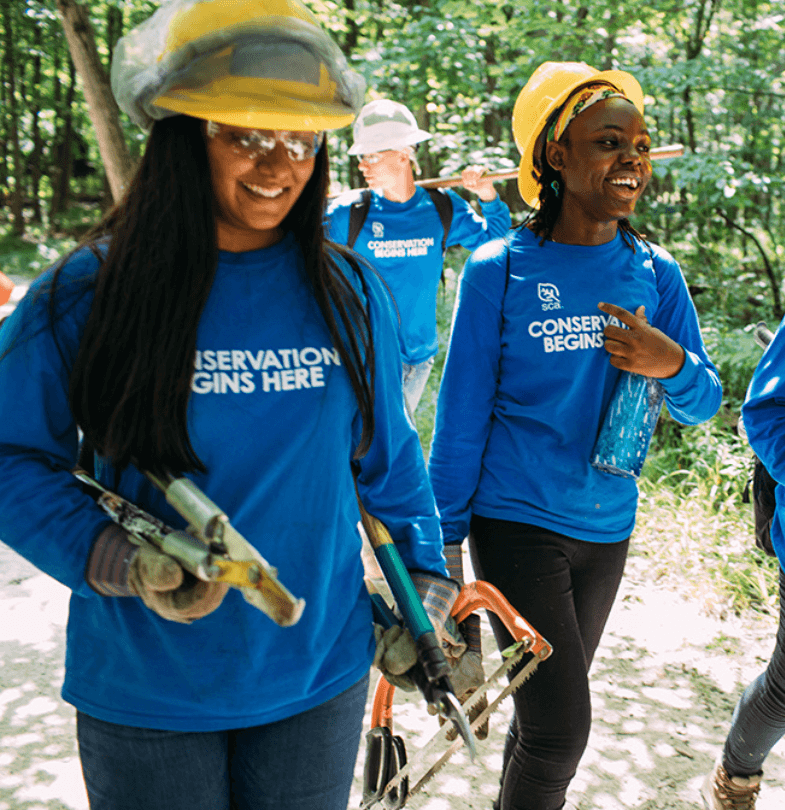
Interns at the Potomac River National Wildlife Refuge Complex focus on the biological aspects of a national wildlife refuge, which is core to the mission of working with others to conserve and enhance habitat. Duties include Integrated Waterbird Monitoring and Management, Resident Bat Inventory & Monitoring, Vegetation Sampling, data entry, and mapping invasive species.
Lost to nearly 20 years of neglect, Voyageurs’ Mukooda Lake Trail finally remerged thanks to an advanced SCA crew that removed blowdowns and brush, installed boardwalks and waterbars, and replaced rock steps to offer users majestic waterfront views. Park Facility Operations Specialist Seth Nelson indicates the trail had been part of their management plan for years, but it took the SCA to make it happen. “The work they can get done,” Nelson marveled. “Without these crews, we wouldn’t keep up our trails or a lot of our sites like they are.”
In partnership with the U.S. Forest Service Region 8, the IFRI program trains participants in prescribed fire and fuels management as well as trail work. Interns are placed at various Ranger Districts throughout the region to assist with fuel management fire suppression and perform other resource management activities as assigned.
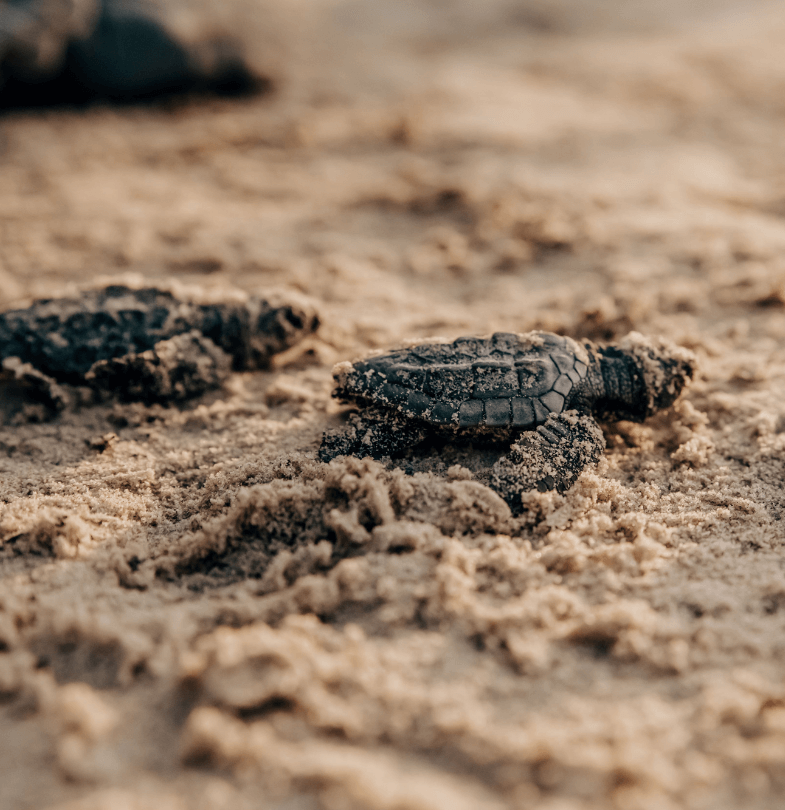
Get more information on the SCA's different program models.
